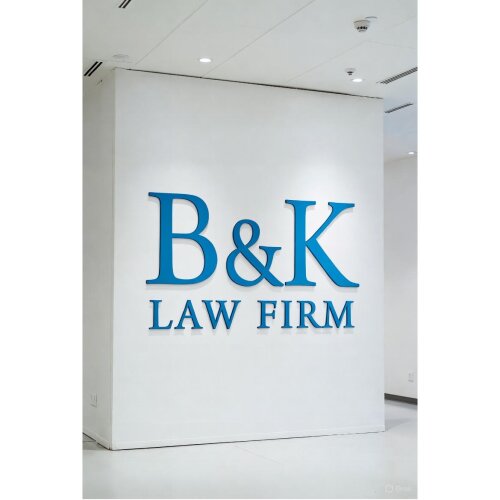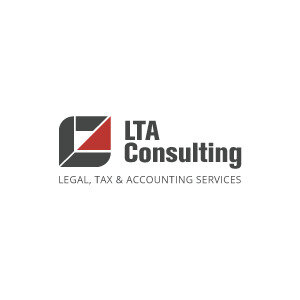Best Bankruptcy & Debt Lawyers in Bulgaria
Share your needs with us, get contacted by law firms.
Free. Takes 2 min.
Or refine your search by selecting a city:
List of the best lawyers in Bulgaria
About Bankruptcy & Debt Law in Bulgaria
Bankruptcy and debt laws in Bulgaria are designed to regulate the financial obligations of individuals and businesses that are unable to meet their debts. These laws provide a structured process for insolvency, allowing debtors to either reorganize their financial affairs or liquidate assets to satisfy creditors. The Bulgarian Commercial Act governs insolvency proceedings, emphasizing fair treatment and debt repayment while offering a legal mechanism to address financial distress systematically.
Why You May Need a Lawyer
Engaging a lawyer specializing in bankruptcy and debt can be crucial in navigating the complexities of Bulgarian insolvency law. Common scenarios requiring legal assistance include:
- Filing for bankruptcy: To ensure all legal standards are met and all documentation is correctly prepared.
- Debt negotiation: To restructure debt terms or negotiate settlements with creditors.
- Defending against creditors: Legal support can be pivotal in protecting assets and rights.
- Corporate insolvency: Businesses may require intricate legal assistance to navigate insolvency proceedings.
- Bankruptcy disputes: Effective legal representation can help resolve disputes during proceedings.
Local Laws Overview
The Bulgarian Commercial Act provides the framework for bankruptcy and insolvency proceedings. Key elements include:
- Initiation of Bankruptcy: Proceedings can be initiated by debtors or creditors when a company is unable to pay its debts.
- Rehabilitation Plan: Debtors can propose a rehabilitation plan to reorganize and discharge debts.
- Liquidation: If reorganization fails, liquidation proceedings involve the selling of assets to satisfy creditors.
- Insolvency Administrators: Appointed by the court to oversee the process, ensuring fair distribution of assets.
- Creditor Meetings: Organized to discuss and approve any rehabilitation plans or liquidation strategies.
Frequently Asked Questions
What is the process to declare bankruptcy in Bulgaria?
Bankruptcy in Bulgaria starts by filing a petition with the district court where the debtor is located. It requires substantial documentation proving insolvency and inability to meet liabilities.
Who can file for bankruptcy?
Both debtors and creditors can file for bankruptcy if the debtor fails to pay due debts within a certain period or if the company’s liabilities exceed its assets.
What is the role of an insolvency administrator?
An insolvency administrator manages the debtor’s assets throughout the bankruptcy process, ensuring legal compliance and protecting creditors' interests.
How are creditors notified about bankruptcy proceedings?
Creditors are informed about the initiation of bankruptcy proceedings through official notifications, allowing them to register their claims with the court.
What is the difference between liquidation and reorganization in Bulgarian bankruptcy law?
Liquidation involves selling assets to pay off debts when reorganization is not viable, while reorganization allows restructuring of debts to try and continue operations.
Can individuals also file for bankruptcy in Bulgaria?
Bulgarian law primarily focuses on business insolvency, though individuals can indirectly benefit from the framework through restructuring their debt obligations.
How long does a bankruptcy process typically last in Bulgaria?
The duration varies widely based on case complexity, ranging from several months for straightforward liquidations to years for complicated reorganizations.
Are there alternatives to filing for bankruptcy?
Yes, alternatives include out-of-court settlements, restructuring agreements, or mediation to resolve debts without formal bankruptcy proceedings.
What happens to the debtor's assets during bankruptcy?
The court or insolvency administrator takes control of the debtor’s assets to prevent unauthorized transactions and manage their distribution.
How can a lawyer assist in a bankruptcy case?
Lawyers provide crucial support in preparing legal documents, advising on strategy, negotiating with creditors, and representing clients in court.
Additional Resources
For further assistance with bankruptcy and debt matters, consider reaching out to:
- Chambers of Commerce and Industry: Offer support and advice for businesses in distress.
- Bulgarian Ministry of Economy: Provides resources and guidance on bankruptcy laws.
- Non-governmental organizations: Offer free legal advice and financial counseling.
Next Steps
If you require legal assistance for bankruptcy and debt issues in Bulgaria, consider these steps:
- Consultation: Schedule a consultation with a lawyer experienced in Bulgarian bankruptcy law to assess your situation.
- Documentation: Gather all necessary financial records and identify the scope of debts and assets.
- Strategy: With your lawyer, determine the best legal strategy, whether it's filing for bankruptcy, negotiating debt, or seeking alternatives.
- Proceed: Follow through with legal guidance to initiate proceedings or execute debt resolution plans.
Lawzana helps you find the best lawyers and law firms in Bulgaria through a curated and pre-screened list of qualified legal professionals. Our platform offers rankings and detailed profiles of attorneys and law firms, allowing you to compare based on practice areas, including Bankruptcy & Debt, experience, and client feedback.
Each profile includes a description of the firm's areas of practice, client reviews, team members and partners, year of establishment, spoken languages, office locations, contact information, social media presence, and any published articles or resources. Most firms on our platform speak English and are experienced in both local and international legal matters.
Get a quote from top-rated law firms in Bulgaria — quickly, securely, and without unnecessary hassle.
Disclaimer:
The information provided on this page is for general informational purposes only and does not constitute legal advice. While we strive to ensure the accuracy and relevance of the content, legal information may change over time, and interpretations of the law can vary. You should always consult with a qualified legal professional for advice specific to your situation.
We disclaim all liability for actions taken or not taken based on the content of this page. If you believe any information is incorrect or outdated, please contact us, and we will review and update it where appropriate.
Browse bankruptcy & debt law firms by service in Bulgaria
Bulgaria Attorneys in related practice areas.
Browse bankruptcy & debt law firms by city in Bulgaria
Refine your search by selecting a city.

















